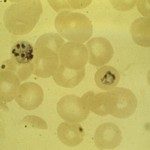Lien vers Pubmed [PMID] – 38477887
Lien DOI – 10.1080/1744666X.2024.2328739
Expert Rev Clin Immunol 2024 Mar; (): 1-12
The etiology of multiple sclerosis (MS) remains unknown. Pathogenesis likely relies on a complex interaction between multiple environmental, genetic, and behavioral risk factors. However, a growing body of literature supports the role of a preceding Epstein-Barr virus (EBV) infection in the majority of cases.In this narrative review, we summarize the latest findings regarding the potential role of EBV as a predisposing event inducing new onset of MS. EBV interactions with the genetic background and other infectious agents such as human endogenous retrovirus are explored. Additional data regarding the role of EBV regarding the rate of mid- and long-term disease progression is also discussed. Lastly, the effect of currently approved disease-modifying therapies (DMT) for MS treatment on the EBV-based molecular mechanisms and the development of new EBV-specific therapies are further reviewed.Recent strong epidemiological findings support that EBV may be the primary inducing event in certain individuals that shortly thereafter develop MS. More studies are needed in order to better understand the significant variability in susceptibility based on environmental factors such as EBV exposure. Future investigations should focus on determining the specific EBV-related risk antigen(s) and phenotyping people with likely EBV-induced MS. Targeting EBV via several different avenues, including development of an EBV vaccine, may become the mainstay of MS treatment in the future.

